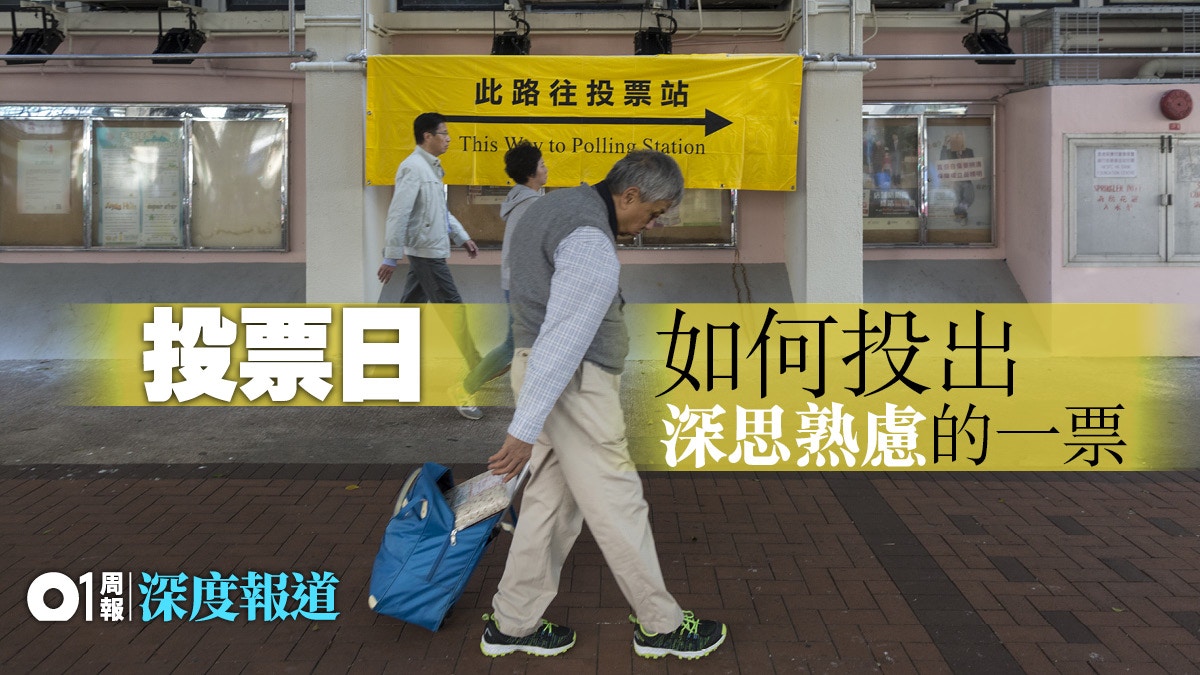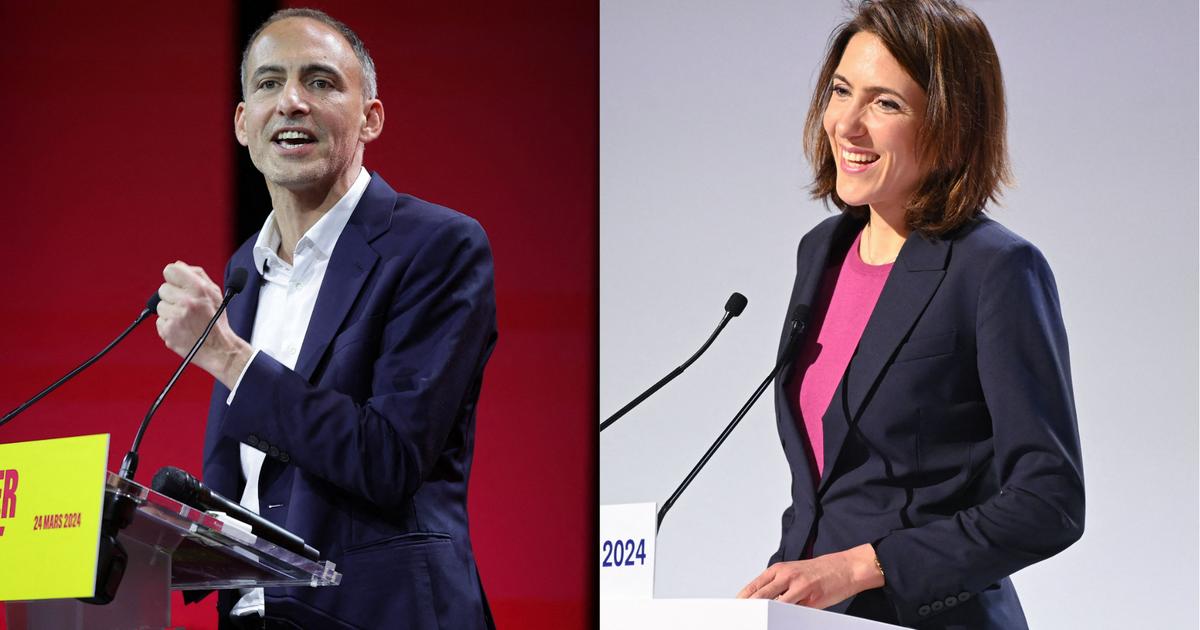weekly
Written by: Hao Ziyu
2019-11-24 07:00
Last updated: 2019-11-24 07:00The image of the district board member is dwarfed. The voters have low imaginations for the district board members. How do the understanding errors of the small white elephant project be solved? How do you get the most value from your vote?
Undertake the above:
[District Council Election] Snake Zhai Cake "Sexual Good"? Is "Little White Elephant" related to you and me?
For voters, supervision is both a responsibility and an obligation. (Photo Photo / Photo by Luo Junhao)
Like "voting", the performance of "monitoring" members is both a citizen's right and a citizen's obligation. However, it is often only when the residents form a certain sense of belonging and identity to the community that they can drive the residents to transform the cohesiveness of the rest and the common into the driving force of active supervision. Participation in community participation in regional organizations is one of the ways to unite community awareness. However, according to the “Citizenship Awareness Study 2010” written by the Citizen Education Committee under the “Policy 21” of the survey institution, only 24% of the respondents participated. There are different types of civil society organizations. Therefore, there are many people in Hong Kong who are camping in the same way as Leo and ignoring community participation. Leo mentioned that the housing estate had held a meeting of owners at the weekend, but there were very few participants. In the end, at least one representative was asked to abstain from the floor to barely make up the number. He also said: "I know that the original intention of the (owner's meeting) is very good, but I am not very concerned about these things, and even if I express my opinion, it may not be useful."
According to Liang Qizhi's July issue of "Community Awareness and Participation of Residents in Hong Kong Residents", Hong Kong people actually have their community life and identity, but they are relatively hidden and difficult to detect, and community crises and challenges can promote this sense of identity. Upper regional groups can also increase residents' concerns about community affairs. For example, in mid-August, the Facebook page "First City Life Circle" issued a quote describing the contents of the "First City Work Report". The Disclosure Committee is studying the trial of the "Human Face Recognition System"; the incident quickly caused residents to discuss hot issues and fear of infringement. Hidden, there are nearly 300 households surrounded by Huang Jiarong, a district board member who is the chairman of the First City Committee. Under the sensitive background of the anti-reform movement, the research plan is dead. "When you feel worried about this change, you need to participate and change. The sense of identity comes out." Liang Qizhi sums up the formation of community identity. "With human face recognition as a contradiction, first This constituency in the city has been paid more attention by voters."
Another form of media—community media—has also emerged and progressed steadily in community development. In general, the District Councils need to scrutinize the minutes of meetings and accurately grasp the views of residents. However, it is difficult for the mainstream media to take into account the affairs of the 18 districts in Hong Kong. Social media lacks certain professionalism. Therefore, it is covered by independent professionals from different professions. The composition of the community media came into being, in order to play the role of citizen supervision.
Liang Qizhi believes that the public's concern and supervision of the district boards is not enough. The existence of community media can explore the actions and deficiencies of the district boards from the perspective of the people. "This also puts some pressure on the district boards and district board members. And it can bring out issues and problems that the public care about. This is what a democratic society should do."
The Wan Chai Urban Redevelopment Project became the focus of the then Wan Chai Street Paper. (Photo Picture / Photo by Huang Shuhui)
Wan Chai Street Paper, published by the Wan Chai District Council, was once another successful attempt of community media. In 2003, due to opposition to the 23rd wave of legislation in the Basic Law, the Democrats obtained more than half of the seats in various district boards, including the Wan Chai District. After the election, the Government vigorously promoted the urban renewal plan and the Lidong Street project set off a civil protection movement. The Wan Chai District Council is on the same line as the residents. It encourages residents to speak freely about the redevelopment programme and implements civic engagement. To educate residents on the issue of redevelopment, the Wan Chai Street Paper civic education publication is published on a regular basis to analyse the redevelopment policy and emphasize local values. The collection of expert opinions and even questionnaires opened the precedent for district councils in community discussion and policy advocacy.
However, the core of the problem is still inseparable from the concerns of residents. Just as Liang Qizhi said in the article "The Legislature Regains Dignity District Councils": "Without supervision, voters cannot have an accurate understanding and evaluation of the work of district boards and the performance of district board members. The decision to vote or not to vote is Continue to break with the actual behavior of district board members. This way, even if there are votes to vote, it is not democracy."
From "politics" to "people's livelihood": how to imagine the district board members more widely
In recent years, Hong Kong has become more politicized, which has also affected the district board election ecology that has always been "heavier than the people." The results of the Hong Kong Research Association's district polls mentioned above have undergone major changes since the umbrella movement in 2015 – 40% of respondents indicated that they would vote for “party background/political position”. (In 2011, only 17%), followed by 35% will consider "past work performance" (as many as 51% in 2011), and another 14% will consider "political platforms" (similar to 2011). The new District Council election under the anti-reform exercise is inevitably a "political" expression. The Democrats have always played "political cards" and shouted "the five major demands for a referendum". Unexpectedly, In the past, the establishment of the people's livelihood project was also changed to "anti-violence" as the main axis of the election, and the voters were called to say no to the violence by the election results.
Should the district board elections let the political stance vote around? (Photo Photo / Photo by Gao Zhongming)
Even Leo, who started to swear by "politically cold young people", sent a reporter to the reporter for more than a week after the visit, to arrange for the candidate's background, deeds, and political attitudes. Guo Qingping, who said that he is re-elected, "is absent when discussing the establishment of an independent investigation committee in the Yuen Long District Council." Leo said that regardless of the political position of the candidate, it should support independent investigation. He did not test the accuracy of the "selection of the person to look at the mirror" and thought that "the selection of a person can be a pursuit of good, but the greater force must be free from suffering." He even hopes to use the power of the district council to hold the top officials of the SAR accountable: "I believe that when there is a need for the same people, there will be results. I am very much looking forward to the changes in Hong Kong."
Even if we pull away from the context of the anti-reform movement, the District Council, as part of the political structure of Hong Kong, is really hard to "just talk about people's livelihood and not talk about politics." The most frequently cited example is that among the 1,200 members of the Chief Executive Election Committee, 117 are elected by district board members and have a significant influence on the Chief Executive election. However, Liang Qizhi believes that the political role of the district boards has been weakened, resulting in fewer voters understanding that when they participated in the district board vote, they actually participated in the election of the chief executive.
The question is, if the "political stance" is only used as the basis for selecting district board members, or if the district board elections are turned into political discourses in a disguised referendum, how can we ensure that the winners have the ability to improve people's livelihood through the practice of parliament? If the District Councils are also "politicized" like the Legislative Council, will it lead to a politically deadlock in the duality of the people's livelihood? Liang Qizhi said that the political nature of the district boards should be put into life to understand, and candidates also need to let voters understand what kind of reform they will use to address the immediate needs of voters. "If there is 50 million yuan (a constituency) here) Do you want to watch any carnival, or do you choose a free medical treatment?"
The "politicization" of the district boards should be settled in the community, not just a political statement. (Information Picture / Chen Yuhui)
A few days before the interviewee, Leo, came to the "People's Mirror", Guo Qingping's propaganda page was said to have said that the other side had little to do in the past few years and rarely appeared. "It should not be chosen again." Then, he sent a screenshot of a satirical oil spurt of the South Point District Councillor Li Simin, who said that he was so high that he could use it as a political achievement and ask the security guards to be better. Please ask them!"--When he came to the "Participating People's Mirror" and attached a long story about "Looking for Hong Kong's Change", the reporter joked: "The politically cold young Leo is still not cold." He returned. The expression of "covering the face". As for whether he still let his wife decide to vote for himself, the reporter did not ask again, I believe he already has the answer.
Leo's voting mentality is more or less a microcosm of some "hate politics" voters. From political positions to life styles, from the frequency of the districts to the contribution of the community, voters who seem to disregard the district boards and district board members actually have their own set of criteria. Today, the district elects to vote. I hope that while practicing this civil rights, we can also take up the obligations of more citizens and carefully vote for one.
Note: The candidates for the constituencies mentioned in the article are: Wang Yusi, Fan Yuyu and Guo Qingping in the Yize Constituency in Yuen Long; Huang Jiarong and Huang Wentao in the First City Constituency in Sha Tin; Li Guoquan, Cai Qilong and Li Simin in the Yau Tsim Mong South Constituency.
related articles︰
[District Council election campaign. A] What kind of district board members do the prime people want?
[District Council election campaign. Second, recapture the District Council. Is politics or people's livelihood?
[District Council election campaign. Three] vote to see the habit of voters in the fog?
[District Council Election] How do you persuade a neighbor to vote for a vote?
[District Council] Amateurs are looking forward to the reform of the district council from the bottom up
Excerpted from the 189th issue of "Hong Kong 01" Weekly (November 18, 2019) "There are votes in the hands of voters. Is it in mind? 》.
More weekly articles.. [01 Weekly Page]
The "Hong Kong 01" weekly newspaper is available at major bookstands, OK convenience stores and Vango convenience stores. You can also subscribe to the weekly newspaper to read more in-depth reports.
District Council District Council Election 2019









